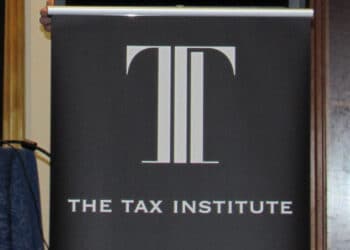Speaking to SMSF Adviser, SuperConcepts non-executive director Stuart Forsyth said that while many SMSF trustees are concerned about Labor’s plans for franking credits, one of the other policies that worries him is its plan to reinstate the 10 per cent rule.
The 10 per cent test, which has been scrapped since 1 July 2017, meant that individuals were only eligible to claim a tax deduction for personal super contributions if less than 10 per cent of their income was earned from employment.
Mr Forsyth said that the removal of the 10 per cent test was very much welcomed by the ATO and everybody else because it essentially put everybody in the same position in terms of being able to make a concessional contribution provided you’ve got assessable income.
“I think it’s a policy that would be a retrograde step. I don’t see why it matters whether assessable income is from salary or wages or from other sources. It doesn’t seem to be material and it seems to be a decision to be motivated by the desire to reduce the cost of the concession,” Mr Forsyth said.
“It basically means that some people will miss out and be unable to make a concessional contribution, and to me, that never seemed fair.”
He also noted that the 10 per cent test was difficult for the ATO to administer and that many people were inadvertently caught by the test.
“People would think they were under the 10 per cent but would just tip over, which meant that amounts that were put into super weren’t deductible which can have a big effect,” he said.
He expected that reintroducing the 10 per cent test now would be especially problematic given the total superannuation balance rules.
It could lead to situations, he explained, where a member is forced to take an amount out of super because they don’t have a concessional cap, and because they’ve gone over the 10 per cent, it’s no longer a concessional contribution.
“It worries me because, from a policy point of view, it’s step in the wrong direction,” he said.
“Why does it matter? If my employer allows me to salary sacrifice, I can make the $25,000 in concessional contributions; if my employer doesn’t, then I may be confined to making only $5,000. It doesn’t seem fair.”



Agree, getting rid of the 10% test was a good move, to bring it back would be stupid. It basically makes it difficult for anyone who is classified as an employee to claim a deduction for a personal contribution. It was difficult to administer and often well meaning contributors were caught out. With concessional contribution cap at a miserable $25,000 who cares where the contributions come from – salary sacrifice or personal deductible. Having both adds flexibility and choice.
Given most people can contribute via salary sacrifice this would seem a ridiculous rule to re introduce. It would only cause confusion and more work for the ATO for little gain. i cheered when they fixed it up – seemed a historical quirk from the introduction of SG in the 90s.
The old system was too confusing and the current system is much better and encourages salary & wage earners to contribute to their own super That must be something any government would like to encourage? Not everyone can afford to salary sacrifice through the year and some of my clients would find that towards the end of the financial year they found some unexpected savings which they wanted to contribute to their superfund. Setting up a salary sacrifice for one of deposits is too cumbersome for most employers!
Labour is no longer the party for the “working class” labour is a party solely dedicated to serving the needs of an ever less relevant union.
A lot of the changes to superannuation they have announced are not designed to penalise the rich (obviously) or target SMSF’s (although they seem to be) what they are aimed at is minimising the utility of SMSFs and thus making industry funds more palatable.
Thus the unions get more control over our super (as they still have board reps on industry funds).
Admittedly, anyone can use the PCC scheme but I’d wager that the proportion of people with SMSF’s who make personal deductible contributions and receive wages is higher than it is in retail and industry funds.Further a lot of public offer funds have restrictions on how their members notify them that a contributions is a PCC so doing this kind of contribution in these public offer funds is (usually) much more difficult.
It’s never abut rich or poor, blue collar v white collar it’s about who is sitting behind the labour politicians.
Agreed Veronica. Labor should have been campaigning FOR this change. The wage earners have been discriminated against since the super system was first set up by this 10% rule. What are the thinking??? (or aren’t they?) Finally wage earners can get deductions only the top end of town could previously access. What’s going on?
Labor is determined to see that nobody can get ahead in life – meddling with franking credit refunds, negative gearing, capital gains, and now the 10% rule. A socialist nirvana!
I agree with Mr Forsyth
Not to mention that I have no desire for my employer to know whether or not I’m making extra super contributions. Why should I have to let them know of my financial arrangement beyond which bank account my salary is deposited into? It’s none of their business and potentially, a disservice to the employee as any pay rise offers may be reduced or not not offered at all based on the fact that they then know you have excess income to save! I agree the removal of the 10% was fair and any reinstatement is a huge step backward.
So True. I never understood why salary and wage earners were penalised. Isn’t this the population that Labour aim to support?